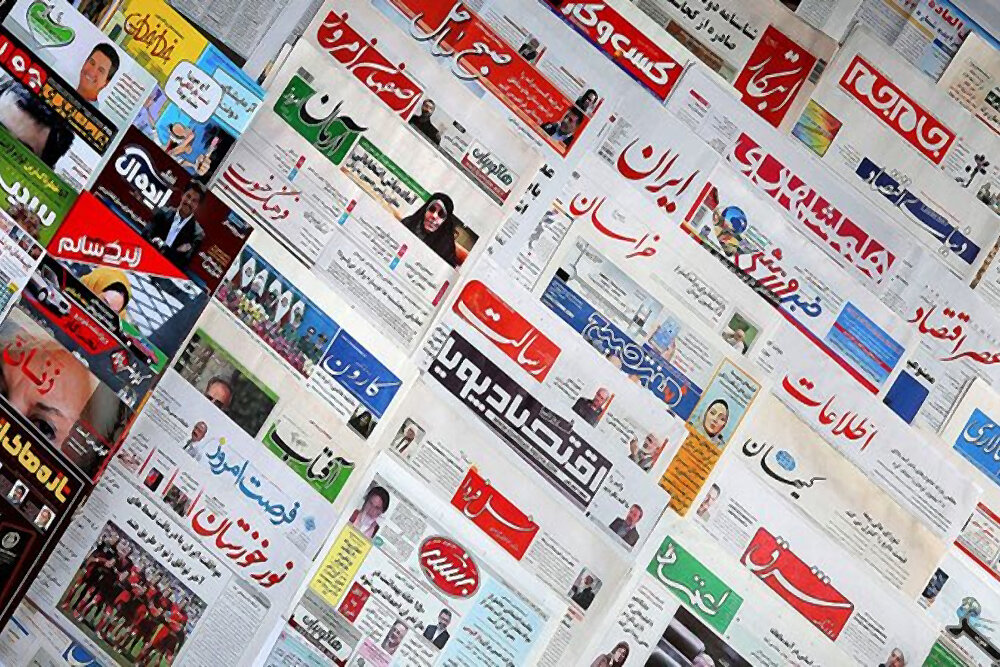Why do we publicly declare support for Palestine?

The Leader of the revolution recently announced that the Islamic Republic publicly declares that it supports the oppressed Palestine.
The Javan newspaper states the reasons for Iran's clear and explicit support for Palestine as follows:
• Palestine, as a part of the Islamic land, has been occupied by the enemy.
• Palestine is not occupied by a normal group or government. The occupiers are the oldest enemies of the Believers.
• From the very beginning, the Zionists announced their purpose beyond Palestine that expands from "The Nile to the Euphrates" and they practically want to dominate the whole world.
• Many experts admit that Zionism has a racist nature, and the Zionists sought to establish an apartheid regime from the very beginning.
• Palestine is right against the wrong. The Palestinian people and resistance groups are under severe oppression and have no supporters in the world.
That is why the freedom of Palestine is not a mere political and propaganda slogan but a purely human ideal.
Etela’at: All roads no longer lead to Moscow and Washington
In an article in the Etela’at newspaper, Dr. Mohammad Kazem Sajjadpour, the former director of the Centre for International Research and Education at the Ministry of Foreign Affairs, writes: More than three decades have passed since the collapse of the bipolar system, the debate on the nature of the international system has been a serious issue in academic and diplomatic circles around the world, and interestingly, the debate continues.
Traditional centers of power have disappeared or are disappearing and new ones have emerged. Middle players have found a more effective role and position in international relations. Indonesia, South Africa, and Brazil are among them.
To examine the position and role of these three actors, one should pay attention to three phenomena: "opening of the international system", "emergence of various power poles" and "definition of role and position".
Under the new condition, the old expression that "all roads lead to Rome" and that during the Cold War all roads ended in Moscow and Washington have lost their meaning.
Etemad: China and Russia not a substitute for the West
In Iran, there is much talk about “Look to the East,” Etemad writes. But the newspaper says if the East refers to the geographical area, for example, South Korea and Japan, etc., these countries cannot support Iran due to their warm relationship with the United States. Therefore, it may be said that the East is the same as Russia and China.
According to the newspaper, Iran has taken steps to improve its relations with Russia and China, but not in such a way that Iran can completely end its relations with the West and rely on the East. The visit of Chinese President Xi Jinping to Saudi Arabia and the visit of President Ebrahim Raisi to Beijing indicate that Iran has not been able to completely rely on the East.
Another important point is that building trust between countries is a long-term process.
In such conditions, it should be said that looking to the East or the West should be stable, premeditated and carefully planned.
In addition, after the revolution, Iran has not had a relationship with its neighbors that would lead to joint security. The other important point is that confidence building will take long years.
IRAN: Structure of Iran's foreign policy based on new world order
From the beginning of his presidency, Ebrahim Raisi used diplomacy as his priority to secure economic benefits, the IRAN newspaper writes.
The trip to China takes place a year after the Islamic Republic became an official member of the Shanghai Cooperation Organization, an organization whose members are trying to be outside the economic hegemony of the United States.
The world is experiencing a new stage, where the new world order replaces the American order.
In such a situation, with the start of the 13th government, the priority in foreign policy was given to neighbors and allied countries in confronting the hegemony and dominance of the United States.
The visit of the president to China can be analyzed in this framework. Although the trip had an economic agenda, its basis was on reconstruction and modernization of Iran's foreign relations, which were severely hurt in the 2010s.
Arman-e-Melli: We must act pragmatically
Arman-e-Melli writes it does not seem that the agreements between Iran and China can improve Iran's economic situation in the short term. For Iran, Raisi's visit to China has more political and propaganda dimensions than economic achievements.
Refusal to invite Iran to the Munich Security Conference shows that the opposition is implementing Iranophobia and Plan B of the Western governments.
It is very clear that the views of the U.S. and European governments have become very close to each other and we are witnessing a consensus among them.
Arab governments are also under a lot of pressure to prevent transfer of dollars to Iran.
It seems that in such a situation, the European governments do not need to launch the trigger mechanism.
Before they want to launch the trigger mechanism, they will continue the same Iranophobia and psychological war against Iran and will put the Islamic Republic of Iran under more economic pressure.
It seems that we should be pragmatic and take more active diplomacy toward the policies of Western governments.
